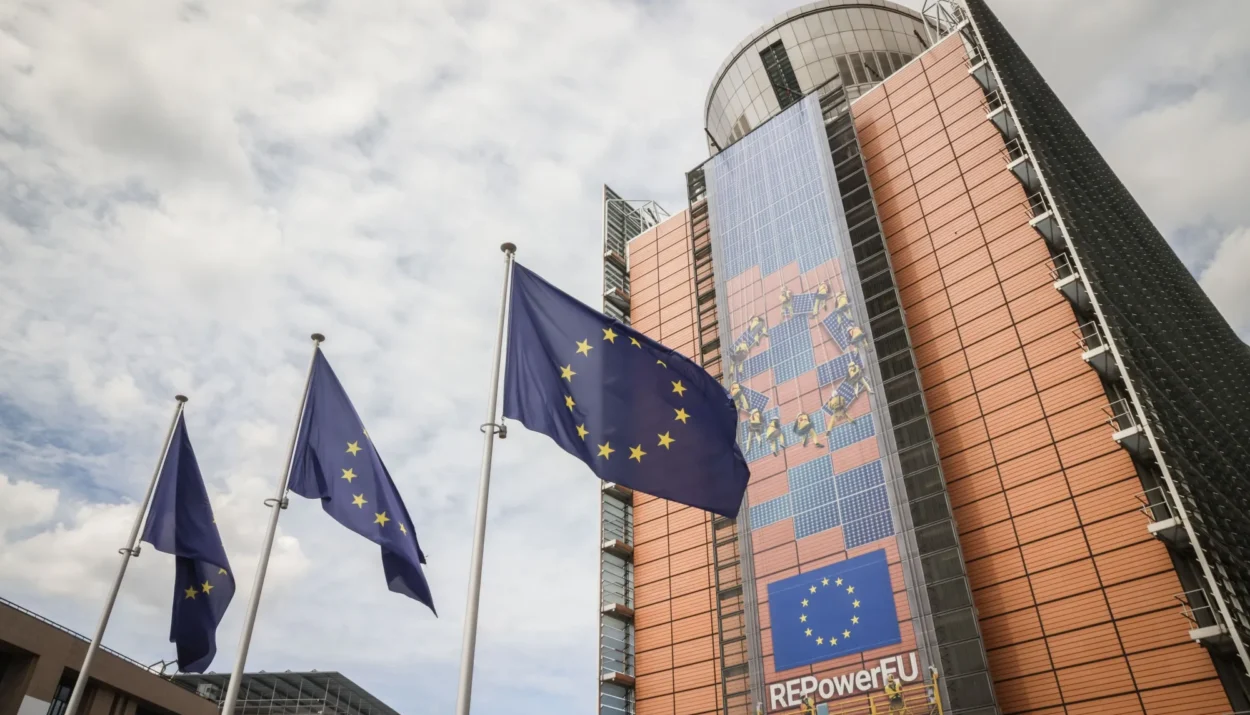The EU is preparing for a major internal battle over whether to give preferential treatment to domestic firms in public procurement contracts worth around €2.5 trillion ($2.9 trillion) annually — about 15% of the bloc’s GDP — as protectionist trade policies rise across the globe.
According to Bloomberg, France is spearheading the push to favour European companies in government tenders, arguing that the bloc must safeguard its industries against US protectionism and China’s weaponisation of economic dependencies. The proposal would effectively strengthen Europe’s “economic sovereignty” by reserving a larger share of contracts for EU-based companies.
France Leads Push for ‘Buy European’ Policy
French officials argue the EU must respond to Washington’s Inflation Reduction Act and Beijing’s dominance in critical supply chains with a similar “Buy European” strategy. Paris has framed the move as vital to maintaining competitiveness and preventing key sectors — from defence to clean tech — from being hollowed out by foreign bidders benefiting from state subsidies.
The debate, set to begin next week among member states, is expected to expose deep divisions. Germany, the Netherlands, and Nordic countries have warned that such a shift could undermine fair competition and breach World Trade Organization (WTO) rules.
A €2.5 Trillion Market at Stake
EU public procurement — contracts covering infrastructure, energy, technology, and defense, is one of the world’s largest markets. Supporters of reform say EU taxpayers should see that money strengthen European businesses, not foreign suppliers. Opponents, however, caution that retaliation from trading partners could hurt European exports and drive up costs.
A Response to Global Protectionism
The move comes as Trump’s revived tariff regime and China’s export curbs on critical minerals have shaken global trade stability. European policymakers increasingly see industrial policy and procurement leverage as tools to reduce vulnerability to external shocks.
“Europe can’t afford to be naïve in global competition anymore,” said one EU diplomat cited by Bloomberg. “If others close their markets, Europe must protect its own.”
The upcoming EU debate marks a pivotal moment for the bloc’s economic strategy, between open-market orthodoxy and strategic protectionism. With €2.5 trillion in contracts at stake, how Brussels resolves this fight will shape the future of European industry and its role in a world where economic power is becoming increasingly political.










